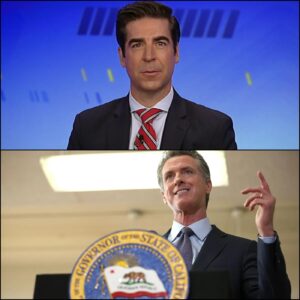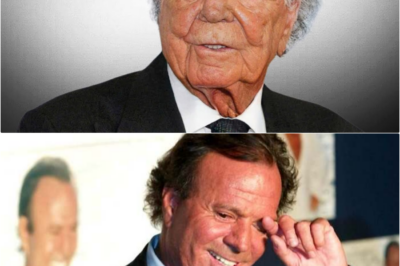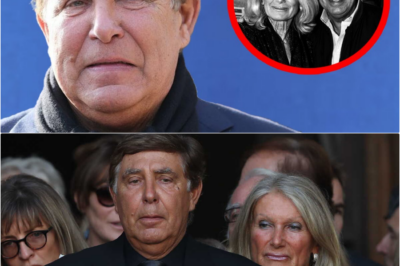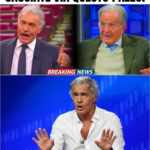Gavin Newsom, the Governor of California, is launching a new podcast in an attempt to engage in political conversations and challenge the MAGA movement. He announced his podcast with enthusiasm, stating that he aims to have direct discussions with people he disagrees with, as well as those he admires. According to Newsom, the goal is to cut through the usual political rhetoric and get to the heart of important issues.

However, critics quickly pointed out the irony of Newsom dedicating time to a podcast while California faces numerous crises, including homelessness, crime, drug addiction, and wildfires. Greg Gutfeld, a political commentator, mocked the idea, questioning how Newsom could find the time for a podcast given the pressing issues in his state. He also speculated that the podcast would quickly run out of meaningful content and turn into a series of political platitudes.
Harold Ford Jr. weighed in, acknowledging Newsom’s intelligence and energy but questioning his priorities. He suggested that if Newsom is serious about fostering discussion, he should dedicate the first six months to interviewing only those who oppose his views. Ford emphasized that true political discourse involves listening to opposing perspectives, rather than simply reinforcing existing ideologies.
Greg Gutfeld, in a moment of sarcasm, suggested that perhaps Newsom’s podcast is actually a good idea because it might push Democrats to move beyond identity politics and engage in genuine discussions. He argued that many Democratic politicians are unaccustomed to long-form conversations, as they are more used to brief, scripted media appearances. If Newsom can move beyond political soundbites and truly explain his policies, it could be a beneficial shift for his party.
Dana Perino added that successful podcasts require curiosity, authenticity, humility, and humor—qualities she implied Newsom lacks. She pointed out that his approval ratings are low, and his recent political setbacks suggest that many Californians do not support his policies. Furthermore, she speculated that Newsom’s real motivation for starting the podcast is to prepare for a 2028 presidential run.
Jesse Watters dismissed the podcast, stating that he would not participate unless Newsom agreed to appear on his show first. He pointed out that the traditional media approach of short, edited interviews is no longer effective, and that politicians must now engage in longer, more substantive discussions. According to Watters, Newsom is at least making an effort to reach out, which is more than can be said for many other Democratic politicians.
Judge Jeanine Pirro expressed skepticism about Newsom’s ability to hold deep discussions, suggesting that he is too ideological and performative. She also noted that Newsom already has a podcast, implying that this new project is merely a rebranding effort. In her view, his podcast is more about self-promotion than genuine engagement with different perspectives.
Overall, the panelists largely viewed Newsom’s podcast as a strategic move rather than a sincere attempt at fostering political dialogue. While some acknowledged that he is at least trying to break out of the Democratic echo chamber, most were doubtful that his efforts would lead to meaningful conversations or policy changes. Instead, they saw the podcast as another step in Newsom’s long-term plan for higher political office.
News
Nolwenn Leroy : Les Révélations Poignantes de ses 42 ans sur “l’Amour de sa Vie”
Dans l’univers parfois impitoyable du show-business français, rares sont les artistes qui parviennent à maintenir une frontière étanche entre les…
Julio Iglesias à 81 ans : Entre aveux sincères, secrets de famille et vérité sur sa santé, la légende se livre enfin
Julio Iglesias n’est pas seulement une voix ; il est un mythe vivant, une icône de la romance qui a…
Isabelle Nanty : Le combat secret d’une icône entre la vie et la mort après une hospitalisation critique
Le monde du cinéma français a retenu son souffle. Isabelle Nanty, figure emblématique et solaire de nos écrans, a traversé…
CLASH EXPLOSIF : Louis Boyard et Apolline de Malherbe, le duel qui a embrasé le direct !
L’arène médiatique a tremblé ce matin. Ce qui devait être une interview politique classique s’est transformé en un véritable champ…
Jean-Pierre Foucault en deuil : Les adieux déchirants à Marie-José Tramoni, la seule femme qu’il ait jamais épousée
Le paysage médiatique français est en émoi. Derrière l’image de l’animateur infatigable, toujours prêt à distribuer sourires et bonne humeur…
Sarah Knafo “rhabille” la gauche : le choc des vérités sur le Venezuela !
Le séisme politique : Sarah Knafo face à l’aveuglement idéologique Le paysage médiatique français vient d’être le théâtre d’une déflagration…
End of content
No more pages to load












